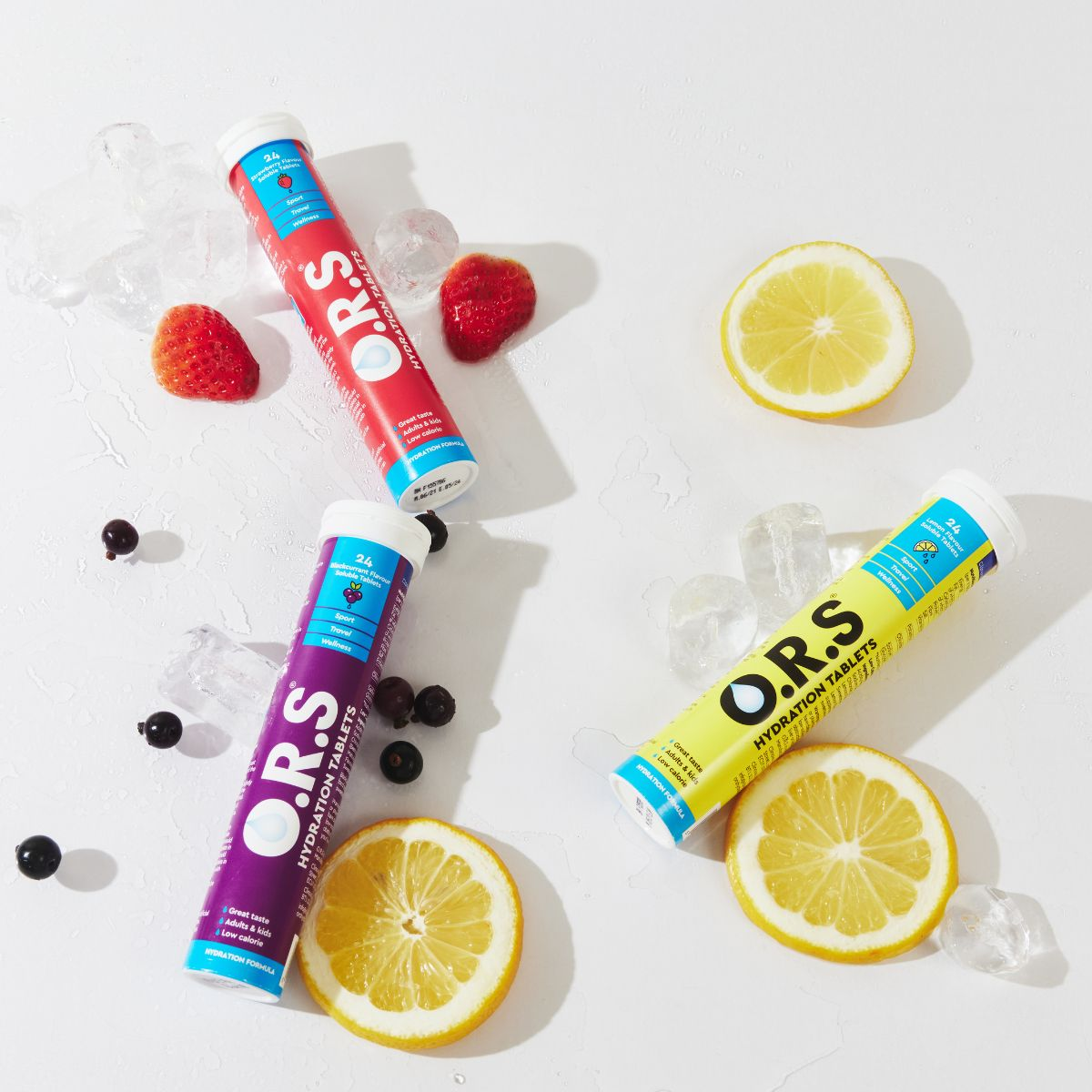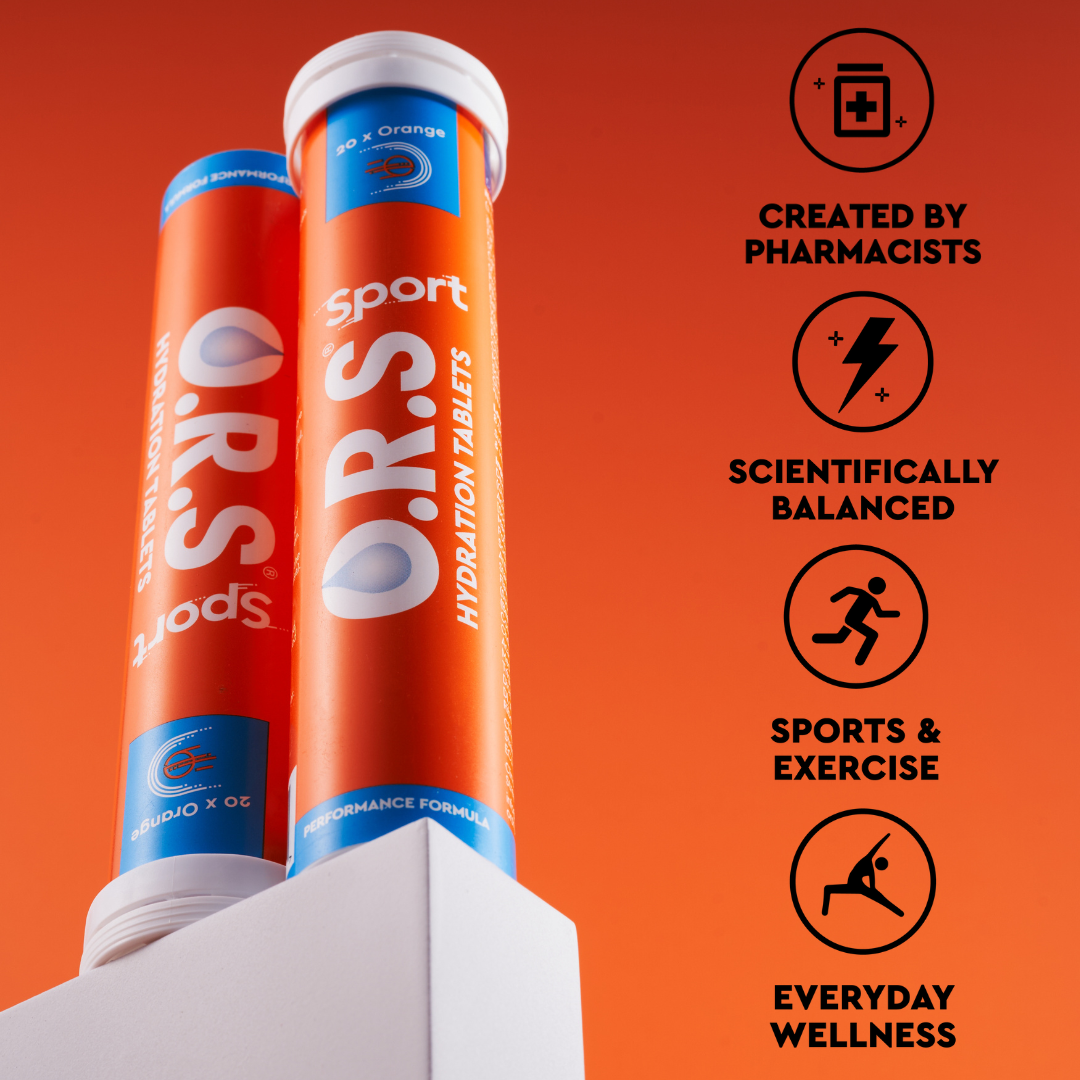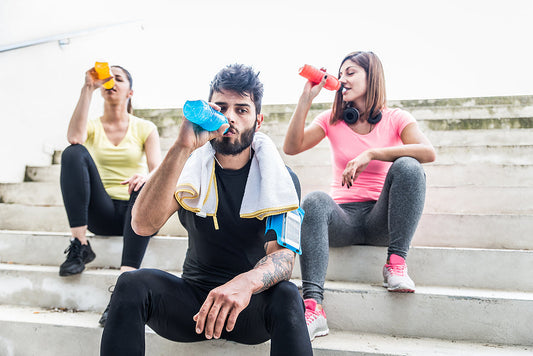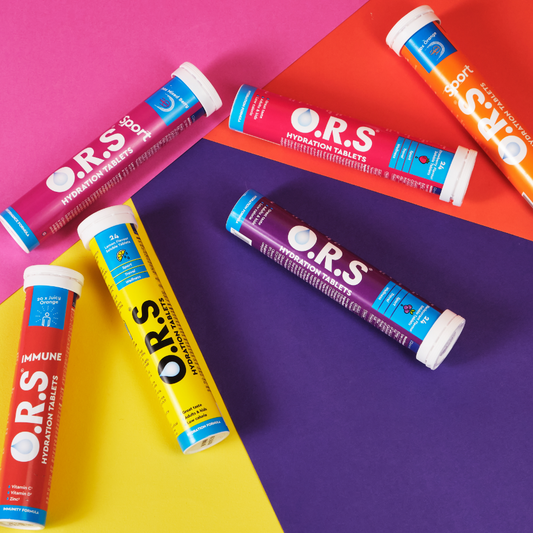
Understanding The Link Between Hydration And Sleep Quality
Share
We’re all familiar with the effects of the occasional bad night’s sleep: feeling sluggish, muzzy, or irritable the next day and finding it difficult to concentrate. Persistent insomnia can be a frustrating problem, and it can be hard to pinpoint the cause.
If you’ve tried everything from cutting back screen time to taking more exercise but nothing makes much difference, one aspect of your wellbeing you might be overlooking is your hydration levels. Here’s a look at how the body’s fluid balance affects sleep quality, and how ORS hydration tablets can support your sleep goals.
Why hydration matters for restful sleep
Our bodies are made up of about 60 per cent water, and even when we are sleeping, we lose fluids through breathing and sweat. Water is also vital for the cell repair and regeneration process that happens overnight.
Because we obviously can’t drink water during the hours we sleep, the brain releases a hormone called vasopressin, which helps the body to retain water. However, if we are poorly hydrated when we go to bed, there is less water available for the vital functions, and eventually this can trigger a premature waking cycle.
The physical symptoms of dehydration, such as a dry mouth, headache, and muscle cramps can also make it more difficult to fall asleep or stay asleep. Disruption of the sleep cycle also interferes with the release of vasopressin, which triggers the production of urine. Therefore the dehydration is intensified, and even drinking a glass of water won’t fully replenish fluids.
Needing to get up to use the bathroom also wakes us up more fully, and getting back to sleep can take longer, if it happens at all.
How to maintain good hydration during sleep
The answer to this question may seem obvious at first: drink plenty of water before going to bed. However, this can be counterproductive, because taking on too much fluid at once overloads the system and the body can’t absorb it easily. In all likelihood, you’ll wake up to make a trip to the bathroom in a couple of hours.
As we have seen, this can disrupt the production of vasopressin, so the body is not retaining fluids as efficiently, leading to further dehydration symptoms that can disrupt sleep quality. Here are some more effective strategies.
Drink at regular intervals throughout the day
Drinking smaller but more frequent amounts of fluids throughout the day is the best way to maintain consistent hydration levels. As a rough guide, we should drink between 2 to 2.5 litres of water per day, but this should be adjusted according to activity levels, climate and humidity, BMI, and any illness that causes you to lose extra bodily fluids.
Use an oral rehydration solution
Electrolyte tablets help to keep the body better hydrated than water alone, because they contain a carefully balanced blend of minerals and vitamins, including sodium, magnesium and calcium. These help the body’s cells to absorb and retain water more efficiently, so you don’t need to risk overloading your bladder before going to bed.
For optimal effect, use one tablet taken with water in the early evening, or to replenish fluids after intensive exercise.
Monitor caffeine and alcohol intake
Caffeine and alcohol are diuretics, which means that they cause the body to increase urination levels. Caffeine is also a stimulant that can interfere with sleep quality, so it’s best to avoid it at least four to five hours before you go to bed. If you drink alcohol, alternate it with glasses of water.
Regulate night time temperature
Excessive sweating during the night can increase your risk of dehydration. Use lighter duvets and lightweight nightclothes in warmer weather, and keep the heating low in winter.
Avoid foods high in salt or protein before bed
Ideally, aim to finish eating at least two hours before going to bed to allow the body to digest your food properly. In particular, avoid foods that are high in salt and protein, as these can increase urine production.







